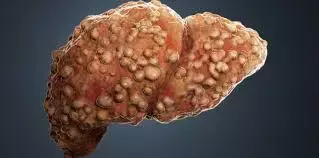- Home
- Medical news & Guidelines
- Anesthesiology
- Cardiology and CTVS
- Critical Care
- Dentistry
- Dermatology
- Diabetes and Endocrinology
- ENT
- Gastroenterology
- Medicine
- Nephrology
- Neurology
- Obstretics-Gynaecology
- Oncology
- Ophthalmology
- Orthopaedics
- Pediatrics-Neonatology
- Psychiatry
- Pulmonology
- Radiology
- Surgery
- Urology
- Laboratory Medicine
- Diet
- Nursing
- Paramedical
- Physiotherapy
- Health news
- Fact Check
- Bone Health Fact Check
- Brain Health Fact Check
- Cancer Related Fact Check
- Child Care Fact Check
- Dental and oral health fact check
- Diabetes and metabolic health fact check
- Diet and Nutrition Fact Check
- Eye and ENT Care Fact Check
- Fitness fact check
- Gut health fact check
- Heart health fact check
- Kidney health fact check
- Medical education fact check
- Men's health fact check
- Respiratory fact check
- Skin and hair care fact check
- Vaccine and Immunization fact check
- Women's health fact check
- AYUSH
- State News
- Andaman and Nicobar Islands
- Andhra Pradesh
- Arunachal Pradesh
- Assam
- Bihar
- Chandigarh
- Chattisgarh
- Dadra and Nagar Haveli
- Daman and Diu
- Delhi
- Goa
- Gujarat
- Haryana
- Himachal Pradesh
- Jammu & Kashmir
- Jharkhand
- Karnataka
- Kerala
- Ladakh
- Lakshadweep
- Madhya Pradesh
- Maharashtra
- Manipur
- Meghalaya
- Mizoram
- Nagaland
- Odisha
- Puducherry
- Punjab
- Rajasthan
- Sikkim
- Tamil Nadu
- Telangana
- Tripura
- Uttar Pradesh
- Uttrakhand
- West Bengal
- Medical Education
- Industry
Diabetes increases risk of liver fibrosis in obese NAFLD patients: Study

Diabetes Mellitus (DM) is a significant risk factor of liver fibrosis in obese and overweight patients, according to a study published in the Obesity Journal.
A group of researchers conducted a study to assess the impact of diabetes mellitus (DM) on nonalcoholic fatty liver disease (NAFLD) and nonalcoholic steatohepatitis (NASH) with advanced fibrosis prevalence in adults with overweight or obesity in the United States.
Participants (National Health and Nutrition Examination Survey [NHANES] 2015-2016 database) included 834 middle-aged patients with diabetes mellitus (DM) (21.7%) and 3,007 without DM (78.3%). nonalcoholic fatty liver disease (NAFLD) was defined by Fatty Liver Index (FLI) ≥ 60 or United States FLI (USFLI) ≥ 30. Moderate-to-high and high risk of advanced fibrosis was defined by fibrosis-4 index (FIB-4) ≥ 1.67 and ≥ 2.67, respectively, and nonalcoholic fatty liver disease (NAFLD) fibrosis scores > 0.676 also indicated a high risk.
The results of the study are as follows:
- Nonalcoholic fatty liver disease (NAFLD) prevalence increased with BMI. Steatosis was higher in individuals with overweight with diabetes mellitus (DM) versus without diabetes mellitus (DM) and in individuals with obesity with DM versus without diabetes mellitus (DM)
- Diabetes mellitus (DM) significantly increased the proportion of individuals at moderate-to-high risk of fibrosis
- In the high risk of advanced fibrosis group, the risk almost doubled.
- Among individuals with obesity, diabetes mellitus (DM) increased the proportion of adults with moderate and high risk of fibrosis by 1.8- and 2.5-fold, respectively
Thus, the researchers concluded that in this US cohort, diabetes mellitus (DM)modestly impacted steatosis, which was primarily obesity-driven. diabetes mellitus (DM) added a significant risk of fibrosis to individuals with overweight or obesity, suggesting that screening is imperative in adults with diabetes mellitus (DM).
Reference:
Type 2 diabetes mellitus increases the risk of hepatic fibrosis in individuals with obesity and nonalcoholic fatty liver disease by Diana Barb et al. published in the Obesity Journal.
https://doi.org/10.1002/oby.23263
Dr. Shravani Dali has completed her BDS from Pravara institute of medical sciences, loni. Following which she extensively worked in the healthcare sector for 2+ years. She has been actively involved in writing blogs in field of health and wellness. Currently she is pursuing her Masters of public health-health administration from Tata institute of social sciences. She can be contacted at editorial@medicaldialogues.in.
Dr Kamal Kant Kohli-MBBS, DTCD- a chest specialist with more than 30 years of practice and a flair for writing clinical articles, Dr Kamal Kant Kohli joined Medical Dialogues as a Chief Editor of Medical News. Besides writing articles, as an editor, he proofreads and verifies all the medical content published on Medical Dialogues including those coming from journals, studies,medical conferences,guidelines etc. Email: drkohli@medicaldialogues.in. Contact no. 011-43720751


